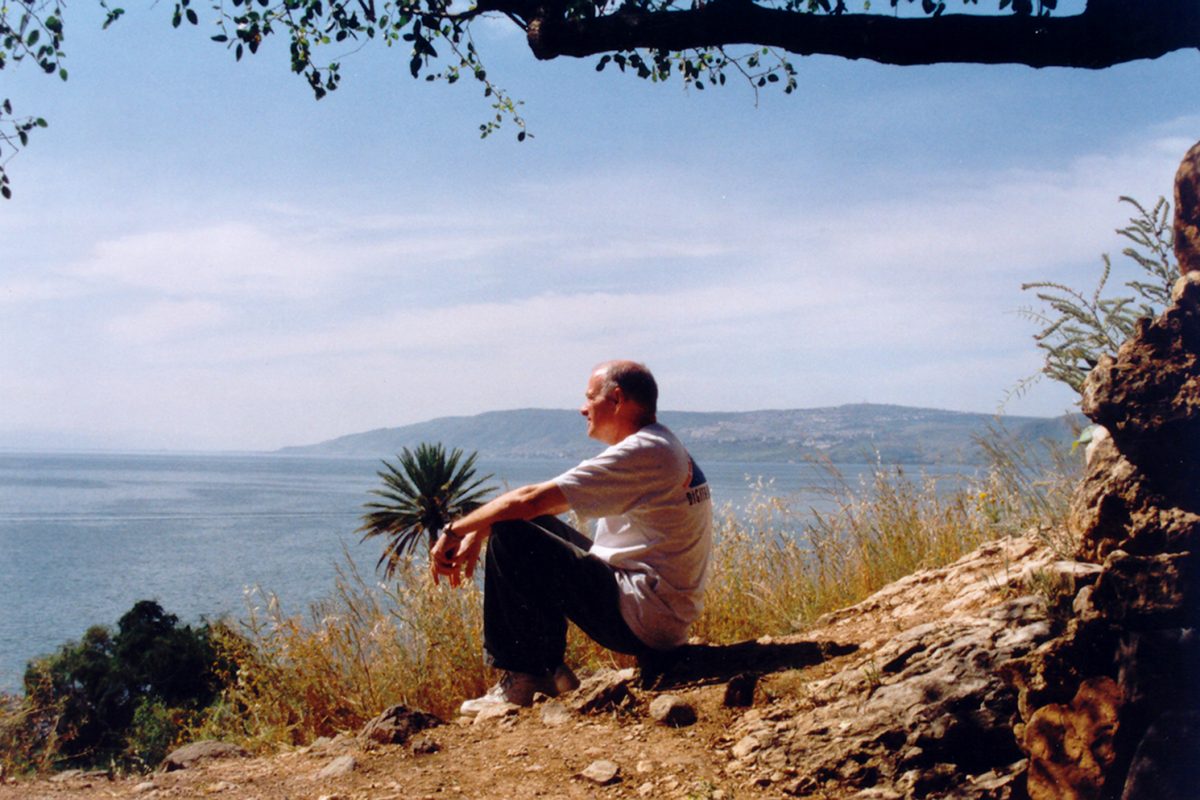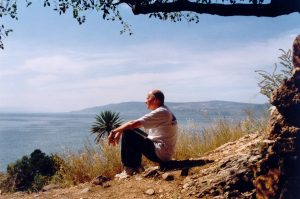
A reflection by Héctor Acero Ferrer on the Thirteenth Sunday in Ordinary Time. Readings: 1 Kings 19.16, 19-21; Galatians 5.1, 13-18 or Hebrews 9.24-28, 10.19-23; Gospel: Luke 9.51-62.
In today’s world, we seldom encounter a situation in which we are forced to leave things behind. In fact, the act of renouncing, in all of its expressions, is so counter-cultural that we often feel it threatens our humanity. Given that we tend to link humanity to freedom and freedom to choice, we end up placing our capacity to choose at the root of our human experience. Since renunciation reduces our choices, we assume it goes against our understanding of what it means to be human.
Perhaps the clearest example of this understanding is the popular idea of love. We are often bombarded by love stories whose success is measured in terms of ownership: the story ends well only if the lover and the beloved effectively possess each other. Isn’t this idea quite opposed to the self-sacrificial love described in our Scriptures? Isn’t the self-sacrificial love, advocated by Christ, something built on the premise of renunciation to self in service of the other? In our everyday life there is much renunciation around food, all of which takes the form of diets, cleanses, and so on. These, however, are only practiced for selfish gain (a slender figure, a longer life, others’ attention), occluding the true meaning of self-sacrificial renunciation. In short, the practice of renunciation is destined to fail in our world of immediacy, accessibility, and choice.
Why am I speaking of renunciation in the context of Sunday’s scripture readings? Because renunciation, discipleship, and the reorientation of one’s life towards God are expressions of the same Christian principle. At the moment in which we decide to follow Christ, we are making a series of choices at the level of thought, word, and action. None of these choices is an easy undertaking. They come with great challenges. I firmly believe that in the eyes of God we are not evaluated on results. Instead, we are measured on the basis of our commitment to achieve a new life. The call to live out this commitment through a reorientation of ourselves is the Christian principle I have been attempting to explore in this reflection.
A well-lived Christian life is a project that launches us on a very specific trajectory. If we decide to achieve it, we should be willing to reorient our actions according to Christ’s ministry, His teachings, and His Passion. We often overlook the significance of this change, thinking that being kind and acting generously are enough to become a good Christian. However, our reorientation to Christ is a process of deep conversion that entails the great discipline that comes with our renunciation of the world. Understood this way, our discipleship comes closer to what Jesus talks about in our Gospel reading this Sunday. By setting his face towards Jerusalem Jesus renounces any alternative outcome for his life, actively excluding anything diverging from the will of the Father.
In every moment of His life, Jesus decides to lead a self-sacrificial life to its fullest, witnessing to the world the truest example of service. In a sense, we are not following Jesus as someone who knew everything from the beginning, but rather as a skillful human being, always looking for better ways to express the human yearning for solidarity. Jesus of Nazareth, as portrayed by the Gospel writers, is constantly reimagining himself and the world around, translating thousands of years of human tradition into collaborative action. It is this dynamic Jesus whom we are called to follow. More often than not we are in motion, unsure of where life will take us next. This allows us to see that, instead of final answers, we should worry about the process. Just like Jesus, it is in every step of the way that we can turn from selfish gain and set our eyes on Jerusalem.
Héctor Acero Ferrer is the Educational and Development Liaison Officer for the Scarboro Missions Interfaith Department. In addition, he is adjunct faculty at Wilfred Laurier University and a research assistant at the Centre for Philosophy, Religion, and Social Ethics at the Institute for Christian Studies. Héctor holds a Master of Divinity and a Bachelor of Sacred Theology from the Toronto School of Theology, and a Bachelor of Arts from the University of Toronto.

